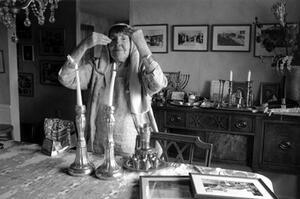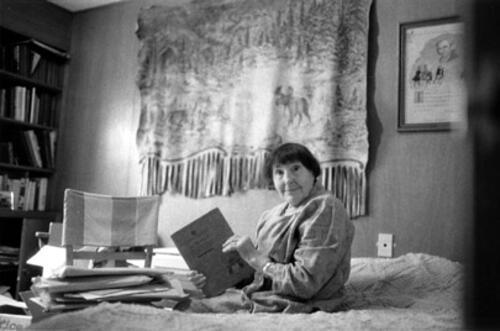Meta R. Buttnick
Frontier Judaism
“I was the second Jewish child born in Fairbanks, Alaska. Daddy stood four-square on Judaism. His position was unshakable. It cost him quite a lot to close the store two days, three days a year, but he did it. We never had any ham or pork in our house. We never had any shellfish. We had wild meat. We had moose, moose steaks, caribou. Mountain sheep was a delicacy, mountain sheep chops. But those were irrefutable rules. No pork, no ham, no bacon. We never experienced a scintilla of antisemitism. But my dad was not satisfied. He wanted the intangibles and the imponderables. He wanted Jewish awareness-not wanted, he insisted. And, well, frankly, he wanted Jewish sons-in-law. So he shipped us away to Dublin, Ireland, his home town, for schooling.”
Seattle Judaism
“With my background, I knew what Jewish loyalty meant and how one must work for it. I was going to get a Jewish education for our son. So I enrolled him in the new Jewish day school [now the Seattle Hebrew Academy], a school with the integration of Jewish scholarship and secular learning in regular public school hours. It was ten miles away. I worked as hard as any human being could to keep that school going. I was blessed with two more children, and they all went. They have the Jewish loyalty, which comes from their scholarship, even though we lived kind of far away and they didn’t live in the Jewish neighborhood. Besides Jewish learning, there’s ethics and morals from the wisdom of our Jewish sages. With my kids it was particularly fortunate because they lost their Daddy-Gwen, the baby, wasn’t even eleven yet when he died. And when the man of the house goes, a lot of discipline goes. But they lived according to Jewish Law, to Jewish Order, and that was another element of discipline.”
“I Am Going to Write History”
“When the Ashkenazic Bikur Cholim started talking about their 50th anniversary in 1941, I said to Harry, ‘Who’s going to write the history?’ He said, ‘History, who needs history?’ I said, ‘I’m going to write it. We have primary source material from the members of the chevra, just like from these fellows that had crossed at Chilkoot Pass [in the Alaska Gold Rush]. So that’s how I started. I felt that it was absolutely something that should be done. I know all archival work is done with an obligation of regret that so much documentation has already disappeared. So I thought it should be recorded. Now it seems like my name is synonymous with history.”




